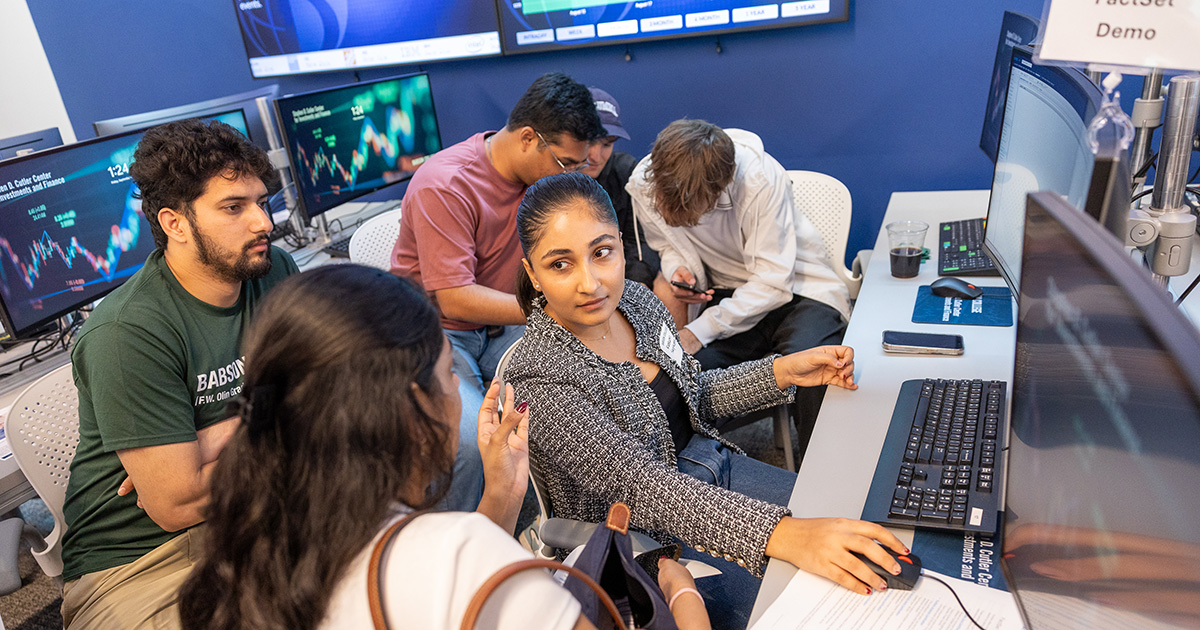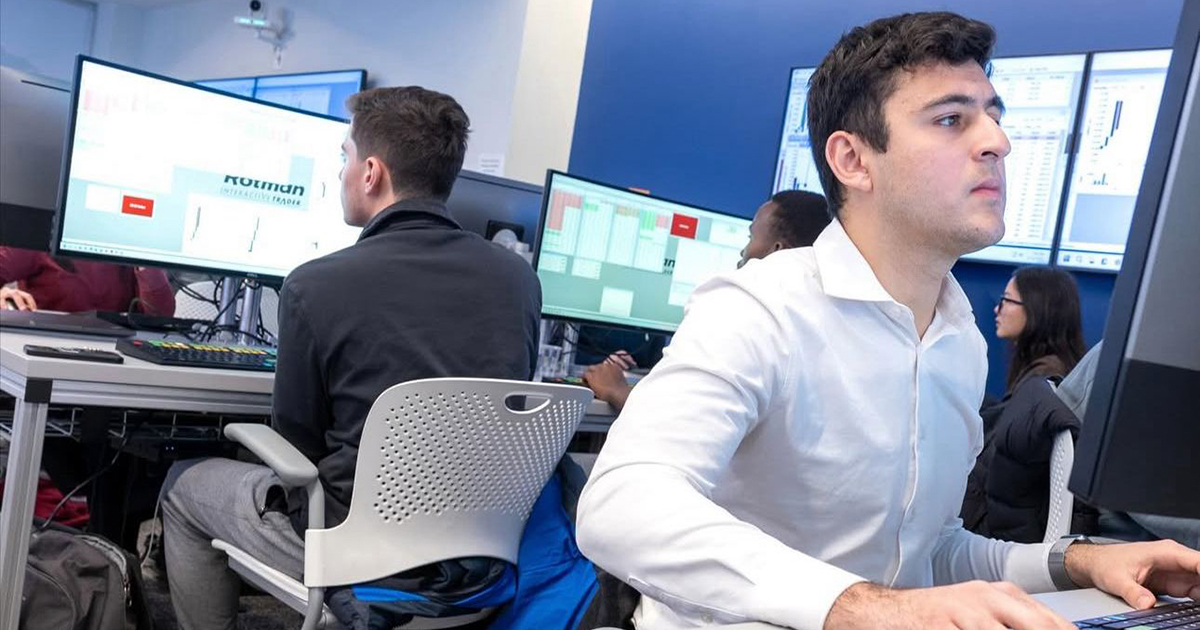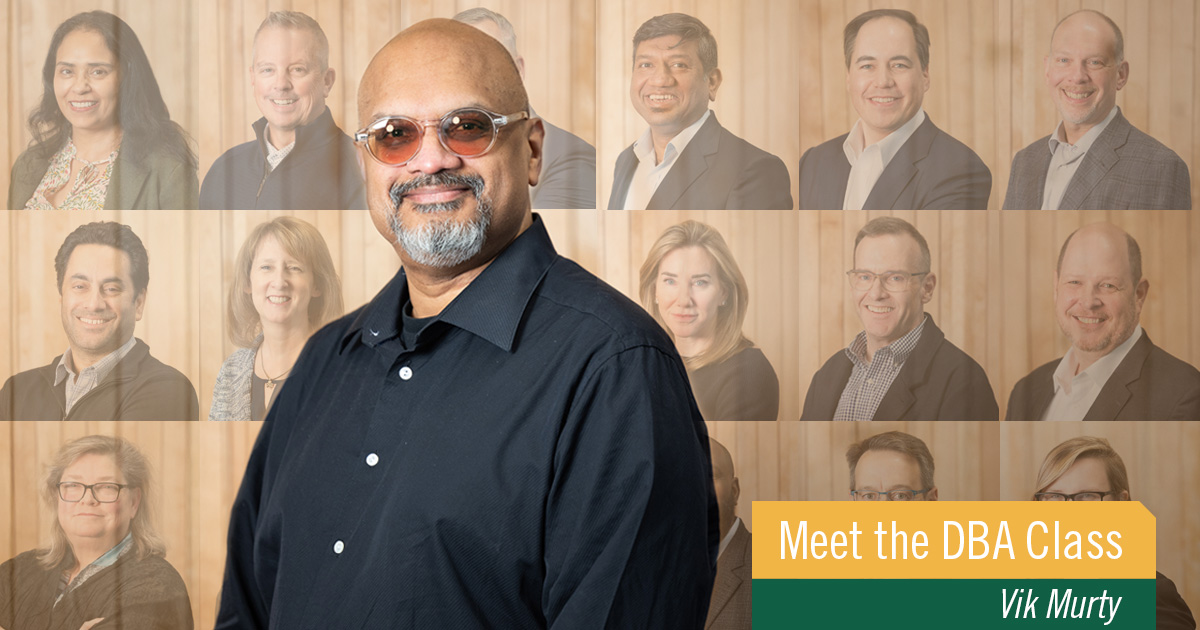HELV’s Cutting-Edge Classrooms Usher in a New Era of Education

As students descend on Babson’s bucolic Wellesley campus this fall, they’ll be greeted by three new state-of-the-art classrooms packed with updated technology to ensure seamless collaboration between virtual and in-person community members.
The classrooms, located in the new Herring Family Entrepreneurial Leadership Village (HELV), build off the years-long work of the Babson Information Technology Service Department (ITSD) team. The updates represent a transformative leap in education technology designed to foster a more interactive and accessible learning environment. The three high-tech classrooms also will be the new home for Babson’s signature first-year course, Foundations of Management and Entrepreneurship (FME).
D.R. Widder MBA’99, Babson’s vice president of innovation, said the new HELV is an embodiment of Babson’s strategy to bolster entrepreneurial leadership anywhere, while impacting communities everywhere.
“We want to deliver entrepreneurial leadership everywhere. In physical spaces, of course, but we also want to do it virtually,” Widder said.
The three classrooms are named for alumni who have supported the HELV: the John R. DiMatteo ’53, P’81 ’84 Classroom (supported by Martha DiMatteo Vorlicek ’81, H’23 Andrew R. DiMatteo ’84, and Susan DiMatteo Keiler, in memory of their father), the Lorber Family Classroom (supported by Michael S. Lorber ‘01), and the Rullo Classroom (supported by Jim Rullo MBA’85 and Eileen M. Rullo).
Classrooms of the Future
The cutting-edge classrooms have been designed with major input from the faculty. The three classrooms are not only large and flexible, but they’re also equipped with multiple tracking cameras and five wide screens per classroom to facilitate greater interaction among students and a seamless hybrid learning environment.
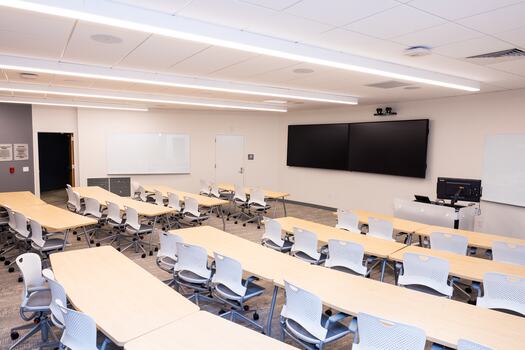
“The tracking cameras can follow whoever is speaking, making remote participation more immersive and engaging,” Widder noted.
The numerous screens have instant casting capabilities, allowing students to share content from their devices effortlessly. The technology is meant to support ad-hoc collaboration, enhancing the interactive learning experience. Widder emphasized, “Students are already collaborating using this technology. They can throw their work up on the screens without needing any setup, making group work more dynamic and interactive.”
Flexibility is another key theme at HELV, evident in the use of an ADA-accessible, sound-insulated pod that provides a private space for collaboration. The pod ensures the village remains adaptable for future educational needs.
“The name of the game is flexibility so we can evolve the space far into the future as our needs and training methods continually progress,” Widder pointed out.
Transforming the Campus Landscape
The high-tech classrooms also will provide new opportunities for innovation, especially with Babson’s FME faculty and students.
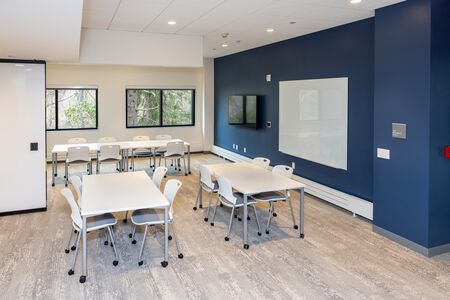
The class requires every Babson first-year student to develop, launch, and manage a new venture. The award-winning FME class is taught by a pair of faculty members who offer deep expertise in entrepreneurship and management.
As the new headquarters for FME, the HELV classrooms offer plenty of space and flexibility, encouraging collaboration between faculty and students alike. Meanwhile, the HELV will become an essential part of every first-year student’s experience.
“It’s a flagship space for a flagship program,” Widder said.
With the HELV, Babson College is setting a new standard for educational environments. By integrating cutting-edge technology and fostering a flexible, inclusive space, HELV not only enhances the learning experience but also extends Babson’s reach beyond its physical campus.
As Widder shared, “We’re creating a hub that brings our entrepreneurial community together, whether they’re here in person or joining us from halfway around the world.”

